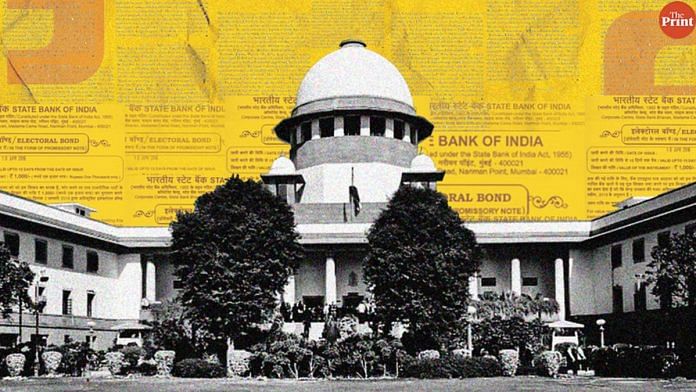The electoral bonds data that shows the BJP received the highest contribution by anonymous donors—Rs 6,986.5 crore—is only one part of the story. When the number of legislators and parliamentary seats is taken into account, it becomes clear that the donations received by the BJP are proportionally lower than other political parties.
TMC, which received Rs 1,397 crore in donations, has gotten a proportionally larger amount as they have fewer seats in Parliament. Third on the list is the Congress, which received Rs 1,334.35 crore, followed by BRS with Rs 1,322 crore, BJD with Rs. 944.5 crore, DMK with Rs 656.5 crore and YSR Congress with Rs 442.8 crore.
Need for transparency
Political parties have always had the right to collect donations and they’re not required to pay income tax on the funds so collected. But they had to declare the amount received through cheque or bank draft. There was, however, a complete opaqueness about donations in cash. This system encouraged the use of black money in political donations, which obviously was not a welcome situation. But it is an established fact that black money has long existed in our country’s political and electoral system.
It is to overcome the use of black money that the PM Modi-led government introduced the electoral bonds scheme. Through black money, funders (so-called donors) continued to take unfair advantage of the political parties and their governments. There was no way to stop quid pro quo, that is exchange of donations for favours. This situation was a serious challenge to our political system until electoral bonds came into the picture in 2017.
The provision was created so that electoral bonds can be purchased by any person or institution and can be given to any political party. The parties can then redeem the electoral bonds within a stipulated time period (15 days). However, in this system, there was no provision to make the information about the donations public.
This is what the Supreme Court objected to, it said that there should be transparency in the transaction of political donations.
But what must be noted is that even in the previous system of political donations, there was no way to know who had given cash to the political party in question, and whether there was any quid pro quo.
Also read: Electoral Bonds data by SBI needs different levels of inquiry: Ashok Lavasa
What next?
Can there be a better system than electoral bonds?
The apex court has also asked SBI to release the information required to find out who donated how much to which party. Then one can dive into questions and allegations of quid pro quo.
The best way to handle political donations is to introduce a modified version of electoral bonds, with the condition that all the required information would be in the public domain.
Going back to the old system of political donations with huge amounts of cash collection would be a retrograde step.
Another alternative to this system of donations is for the government to fund election expenditures of candidates by providing money from the exchequer. This, again, is not practical, given the fact that any number of individuals can fight elections for the Parliament, Legislative Assembly and local bodies.
If we assume that only political parties can fight elections, there is again a large number of national and state-level political parties, of different sizes and popularity. Expecting donors to deposit donations in a central repository of funds and for the government to distribute this fund to all political parties equally is also not practical.
Moreover, if someone who donates money feels that the ideology and programmes of some parties are based on narrow thinking and are harmful to the country, they would not like their donation being used to fund that party. The individual or organisation should be able to choose whether they donate to any one party or distribute their money among some parties as per their beliefs.
Also read: Directly, via proxy, or through subsidiaries — how India’s biggest corporates bought electoral bonds
Don’t go backwards
While the Supreme Court’s ruling on electoral bonds is to be respected, it must be understood that the scheme has been a progressive step toward eliminating the use of black money in elections. It is no longer possible for us to return to the horrible days of black money ruling our political system, where neither the source of the money nor the identity of the person giving it was known.
Even today, in every election, we see reports of the Election Commission seizing large amounts of cash. It’s a concern which cannot be ruled out. The purpose of any scheme or legislation in this domain is geared toward eliminating the interference of money and muscle power in the democratic process of our country and ensuring clean and fair elections.
While making amendments to the law pertaining to political funding, we need to ensure that we don’t revert to the old system of cash receipts. It would allow the return of corruption and muscle power to public life and encourage the use of illicit money to make political donations.
Ashwani Mahajan is a professor at PGDAV College, University of Delhi. He tweets @ashwani_mahajan. Views are personal.
(Edited by Theres Sudeep)




Did it ever go away.